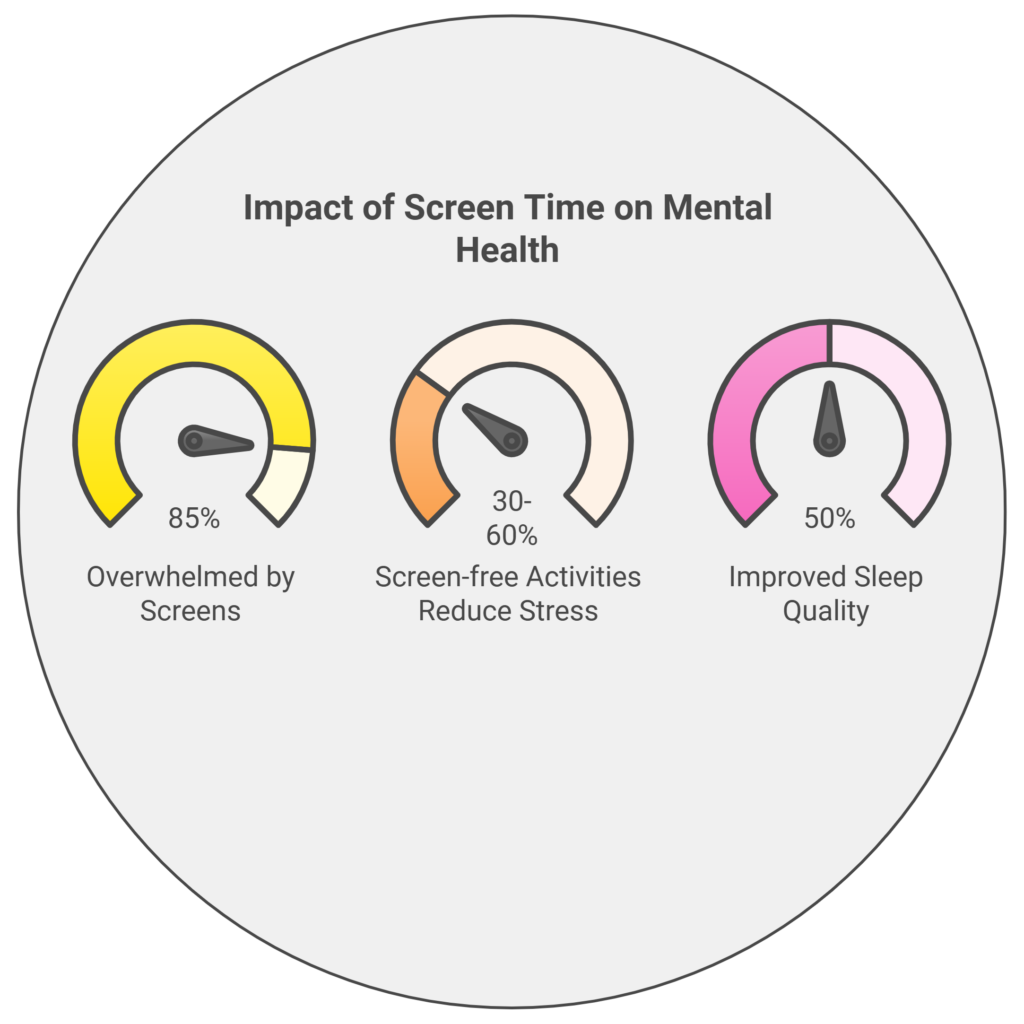Mental Wellness: Daily Habits to Boost a Positive Mindset
Ever feel stressed, overwhelmed, or mentally exhausted? You’re not alone. Life can throw a lot at us, but the good news is, you can improve your mental health by developing small, daily habits that make a big difference. Let’s explore some easy changes you can make to boost your mental wellness and create a positive mindset..
Let’s dive into these daily habits that will help you boost your mental wellness and cultivate a positive mindset!
1. Boost Your Mental Wellness with Morning Routines
How you start your day matters. Instead of rushing straight into the day’s tasks, create a simple morning routine that helps set the tone for positivity and productivity.
Try this:
- Affirmations: Start by saying something positive, like “I am ready for today.”
- Hydration: Drink a glass of water first thing to hydrate your body and mind.
- Stretching or yoga: Light movement can wake you up gently and boost your mood.
Why it works: A good morning routine helps you stay calm, grounded, and ready for whatever comes your way.
2. Physical Activity for Mental Wellness
Moving your body is one of the best ways to improve your mental health. Exercise releases chemicals called endorphins that naturally boost your mood.

Easy ways to stay active:
- Take a brisk walk for 20 minutes.
- Try a home workout or a yoga session.
- Dance to your favorite songs.
Why it works: Exercise reduces anxiety, increases happiness, and helps you think more clearly.
3. Gratitude Practices to Enhance Mental Well-being
Gratitude changes your focus from what’s wrong to what’s going right. It can make you feel more positive, even on tough days.
How to practice gratitude:
- Write down three things you’re thankful for each day.
- Share what you’re grateful for with a friend or family member.
Why it works: Regular gratitude helps reduce negative emotions like envy and increases feelings of joy and contentment.
4. Effective Stress Management for a Positive Mindset
Stress happens to everyone, but managing it is key. You can’t always control the stress in your life, but you can control how you react to it.
Stress management techniques:
- Deep breathing: Take slow, deep breaths to calm your mind and body.
- Break it down: Turn big tasks into smaller steps to feel less overwhelmed.
- Engage in hobbies: Doing something you enjoy can help you relax and recharge.
Why it works: Effective stress management helps you stay calm and positive, even in difficult situations.
5. Build Meaningful Connections for Better Mental Health
We all need people we can rely on. Building strong relationships with friends and family is essential for mental wellness.
How to build connections:
- Reach out to someone regularly, whether by phone, text, or in person.
- Join a group or club to meet people with similar interests.
Why it works: Close relationships offer support during hard times and increase feelings of happiness and belonging.
6. Practice Mindfulness and Meditation for Mental Wellness
Mindfulness means focusing on the present moment without judgment. It can help you reduce stress and improve emotional control.
How to practice mindfulness:
- Spend 5-10 minutes each day focusing on your breath.
- Use apps like Headspace or Calm for guided meditations.
Why it works: Mindfulness reduces overthinking and helps you stay present, calm, and in control.
7. Prioritize Restful Sleep for Improved Mental Health

Getting enough sleep is vital for a healthy mind. Poor sleep can leave you feeling irritable, stressed, and unable to concentrate.
Sleep tips:
- Go to bed and wake up at the same time each day.
- Create a calming bedtime routine, like reading or listening to soft music.
- Keep your room dark, cool, and quiet.
Why it works: Good sleep boosts mood, reduces stress, and helps you stay focused during the day.
8. Nutrition Habits that Support Mental Wellness
.The food you eat has a big impact on how you feel. Eating a balanced diet gives your brain the nutrients it needs to function well.
Healthy nutrition tips:
- Include more omega-3 fatty acids in your diet (found in fish, walnuts, and flaxseeds).
- Eat plenty of fruits and vegetables to boost your brain and body.
Why it works: A healthy diet improves energy, boosts mood, and supports cognitive function.
9. Limit Screen Time to Improve Mental Well-being

Spending too much time in front of a screen—especially on social media—can make you feel anxious and disconnected. Set limits on screen time to give your brain a break.
How to limit screen time:
- Take regular breaks from screens throughout the day.
- Avoid screens for at least an hour before bed.
Why it works: Limiting screen time helps reduce stress and improves focus, sleep, and overall mental wellness.
10. Cultivate a Growth Mindset for Long-term Mental Wellness
A growth mindset means believing that you can improve your abilities through effort. This mindset helps you handle challenges better and stay positive.
Ways to develop a growth mindset:
- Embrace challenges and view mistakes as learning opportunities.
- Practice self-compassion and remember that progress takes time.
Why it works: A growth mindset increases resilience and reduces self-doubt, helping you stay positive through life’s ups and downs.
FAQs
1. How long does it take to see changes in mental wellness after adopting new habits?
You’ll start to notice improvements in your mental wellness within a few weeks. Consistency is key!
2. What are quick ways to reduce stress during a busy day?
Take a few minutes to breathe deeply, go for a short walk, or practice mindfulness to calm down quickly.
3. Can exercise really improve my mental health?
Yes! Exercise releases feel-good chemicals that reduce stress and anxiety, improving your overall mood.
4. How can I improve my sleep routine?
Create a consistent sleep schedule, limit screen time before bed, and develop a relaxing bedtime ritual.
5. What role does nutrition play in mental wellness?
Eating a balanced diet supports brain function, stabilizes mood, and helps reduce symptoms of depression.
6. How do I start practicing mindfulness?
Start by dedicating 5-10 minutes a day to focus on your breathing or body sensations. Apps like Calm and Headspace are great for beginners.
By adopting these daily habits, you’ll be well on your way to boosting your mental wellness and maintaining a positive mindset. Remember, these changes don’t need to be overwhelming—just start with one or two habits and build from there. Your mental wellness journey starts with small steps!





2 Comments